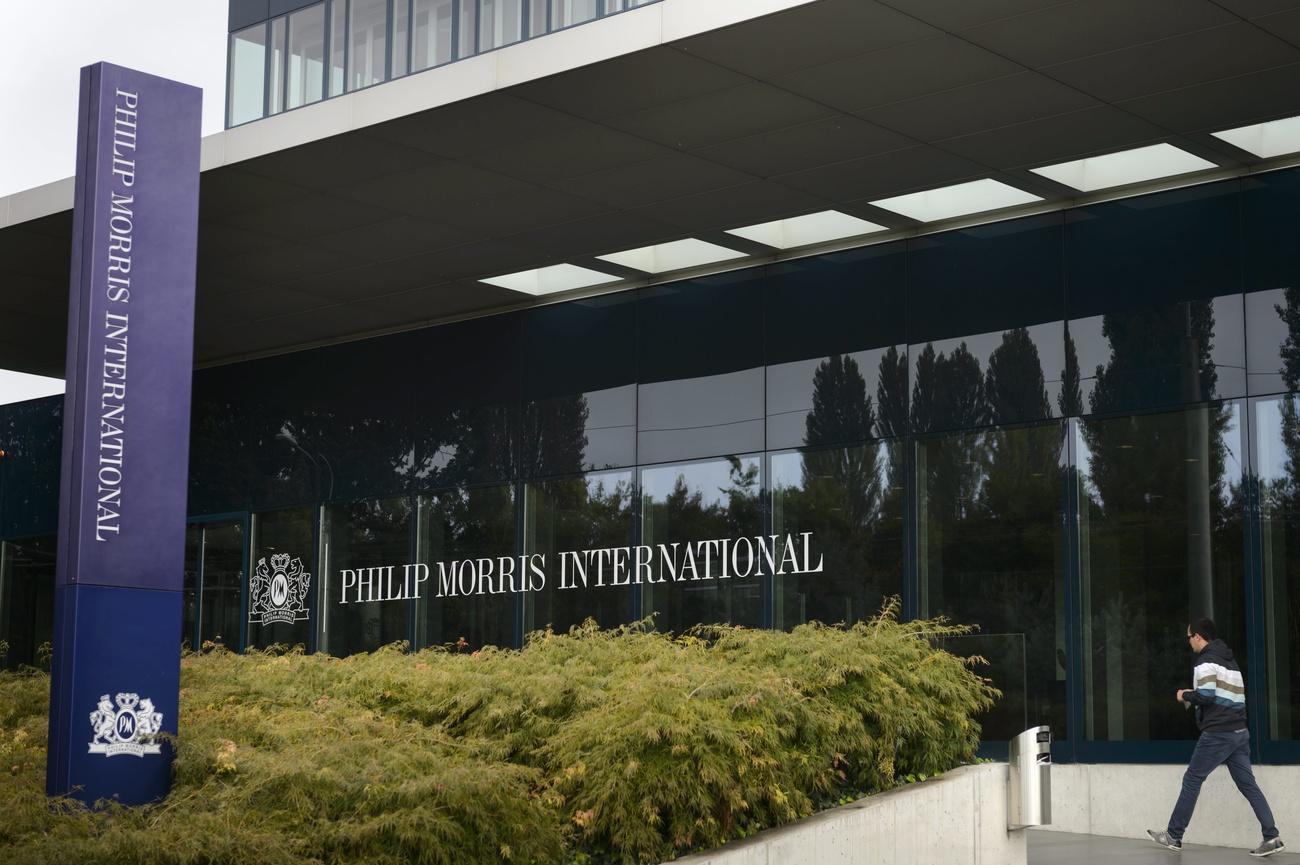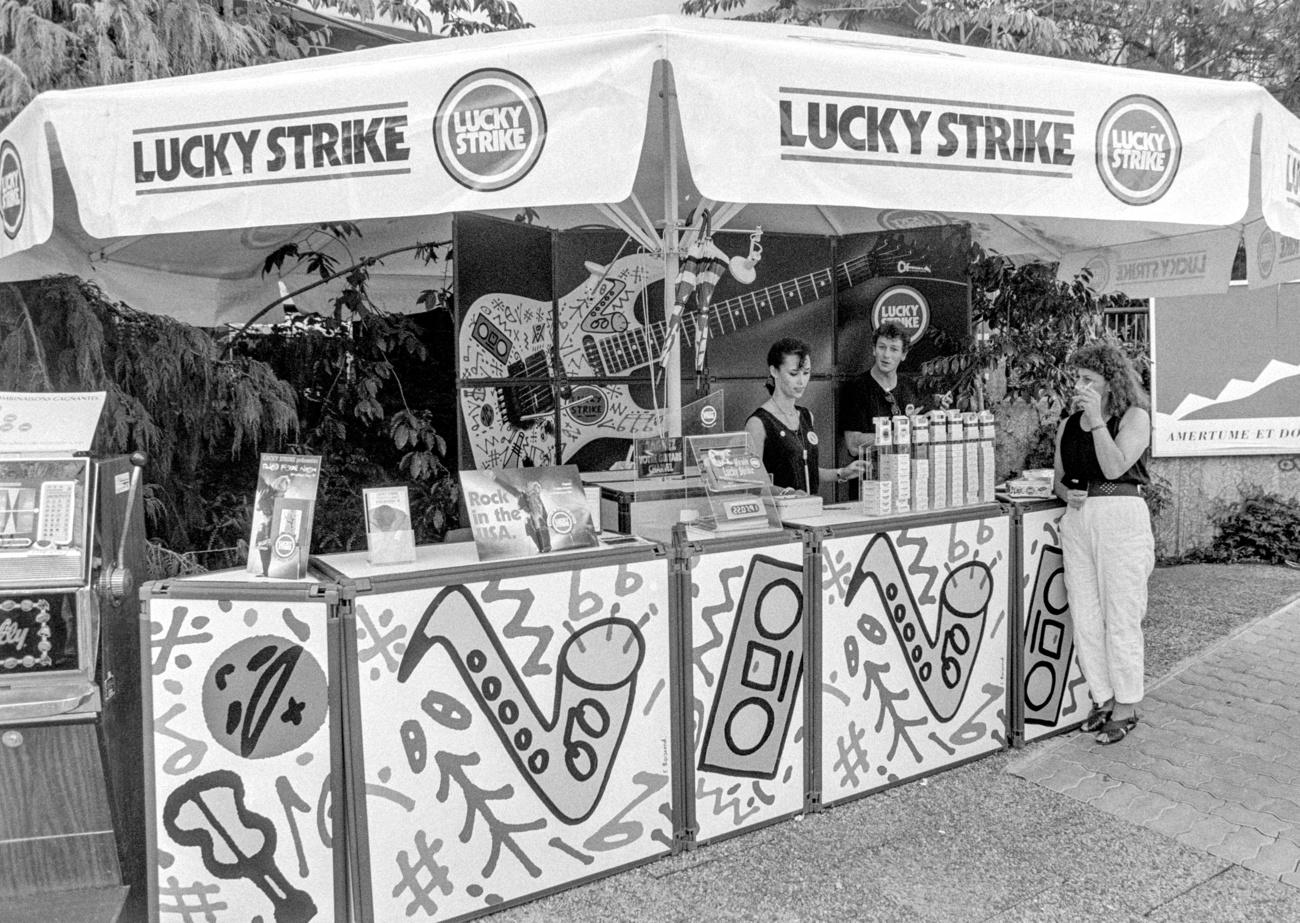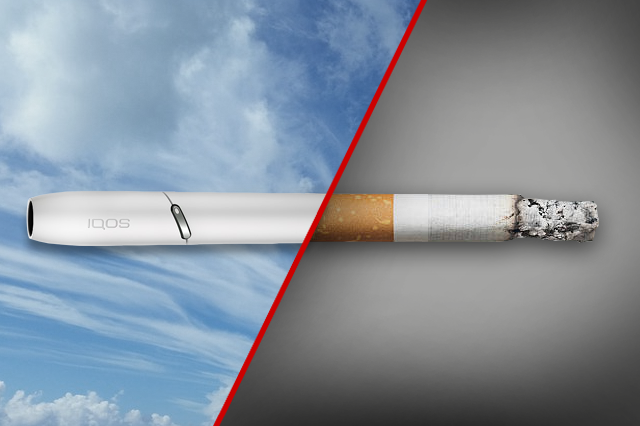
Should Swiss museums and festivals accept tobacco industry money?

Swiss cultural events and institutions face an ethical dilemma when accepting sponsorship deals from the likes of cigarette giant Philip Morris. A recent case involving the new Vaud Fine Arts Museum in Lausanne sparked some soul-searching on a complex issue.
Situated just a stone’s throw from Lausanne’s train station, the new Vaud Fine Arts Museum recently opened to the public in the “Plateforme 10” cultural district. The CHF83-million museum was partly financed by private sponsors (40%), including locally based Philip Morris International, which gave CHF390,000 ($397,500) towards construction work and CHF50,222 for running costsExternal link.
While the imposing new project has been lauded, critics, unhappy with the sponsorship deal, say Vaud authorities should prevent cigarette firms and other ethically questionable companies from funding public institutions like museums and festivals.
“On the one hand we have the state trying to combat the use of tobacco and doing anti-smoking prevention, while on the other it offers advertising space to tobacco firms,” said leftwing politician Hadrien Buclin.External link
The land of the tobacco industry
Switzerland is an extremely important country for tobacco firms. The world’s top two cigarette firms – Philip Morris InternationalExternal link and British American Tobacco (BAT)External link have strong presences in Lausanne and elsewhere in Switzerland. Tobacco firms contribute an estimated CHF6.3 billion ($6.4 billion) a year to the Swiss economy, employing 11,500 people. The Alpine country is one of the remaining few states still to ratify the World Health Organization (WHO) Framework Convention on Tobacco Control (FCTC)External link, which includes strict measures on advertising and sponsorship.
He believes such sponsorship and patronage deals are not properly controlled in Switzerland and should be stopped.
The Vaud parliament disagrees. Last month parliamentarians rejected Buclin’s proposal to ban future sponsorship or patronage of Plateforme 10 by cigarette companies and other controversial firms that run contrary to cantonal public health, environmental, human rights and sustainable development objectives.
Big influence
Financial considerations and the local clout of cigarette firms fuelled a heated parliament debate.
“If we want to be logical, the Vaud authorities should refuse all tax revenues from such firms,” declared Radical Liberal Florence Bettschart-Narbel.
Social Democrat Myriam Romano-Malagrifa said that refusing money from such companies would be like “shooting yourself in the foot”. “If we reject their money, who will fill the gap?” she asked, adding that if you ban tobacco industry money, next on the list could be pharmaceutical firms or the Swiss lottery.
“Tax money cannot solve everything; patronage and sponsorship money are also useful,” said Vaud Finance Minister Pascal Broulis.
Public institutions’ ethical charters are developing, Broulis added, but it would be “unwise to close all doors”.
Complex and historic links
Yet attitudes seem to be evolving extremely fast in the land of the tobacco industry. According to a 2016 study by Swiss Addiction MonitoringExternal link, 59% of the population would be in favour or somewhat in favour of a general ban on partnerships between cultural or sporting events and the tobacco industry.

More
Minister to review sponsorship rules after dumping Philip Morris
The issue peaked last July, when Swiss Foreign Minister Ignazio Cassis dumped Philip Morris as a sponsor of the Swiss pavilion at Expo 2020 Dubai, following a wave of negative headlines and criticism from health organisations.
But tobacco industry sponsorship remains deep-rooted in Switzerland.
In canton Vaud, as well as the cantonal fine arts museum, Philip MorrisExternal link is a historic sponsor of the Lausanne Jardins event and the Hermitage Museum Foundation in Lausanne. It also makes donations to half a dozen NGOs and charities, including the Vaud Red Cross.
Philip Morris insists its cigarette promotion and sponsorship activities have also evolved.
The firm says it has has stopped advertising and promotion of its cigarette brands in Swiss newspapers, on billboards, in cinemas and at festivals for over a year.
Philip Morris spokesman Julian Pidoux explained that the firm had “replaced our communication for adult smokers with information about our smoke-free products such as IQOS. This of course applies to our sponsorships of the Paleo festival in Nyon External linkand the Rundfunk festival in Zürich.”

For its part, BAT Switzerland SA is a longstanding co-sponsor of the Montreux Jazz Festival. It also gives “modest” funding to local festivals from amongst the large number of requests it receives each year. The BAT Foundation SwitzerlandExternal link also gives grants to social projects in cantons Jura and Vaud.
Give and take?
While some Swiss festivals, like the Gurten Festival in BernExternal link or the Festival de la CitéExternal link in Lausanne, have decided to refuse partnerships with cigarette firms, others, like Lausanne JardinsExternal link or Rock Oz’ArènesExternal link continue to accept the money.
Ethical sponsoring is a broad and complicated issue, according to Michael Kinzer, the former director of the Festival de la Cité and current head of Lausanne’s culture service.
“Twenty to 40 years ago all sponsoring or patronage was welcome and less seriously questioned. Today we are in a period where moral and ethical questions are strongly discussed in society and where financial issues, money invested in cultural projects, are more questioned internally for their potential external risks,” he said.

More
Inside Philip Morris International: On a mission to convince the skeptics
In Zurich, Japanese Tobacco International (JTI) features on the the long list of partners on the Kunsthaus Museum websiteExternal link. JTI sponsors a Kunsthaus party and programme as part of the annual Long Night of Zurich MuseumsExternal link.
“About 30% of Swiss smoke and 99% drink alcohol, and all these products can be legally produced in Switzerland. We think accepting a small sum from JTI for one day is acceptable,” notes Björn Quellenberg, the Kunsthaus head of press and communications.
Others say that finding alternative sponsors to the cigarette firms is not that easy. The small privately-run Cully Jazz FestivalExternal link on Lake Geneva used to receive “very generous” sponsorship money from Philip Morris but their partnership deal ended in 2015 after mutual agreement, according to the event’s co-director Guillaume Potterat.
“There is a lot of competition with other festivals, so finding sponsors has become more complicated,” he said. “Of course, we will discuss internally each time we have a new sponsor. We try to ensure the sponsors agree with our values. We won’t take Glencore tomorrow as a sponsor, for example. Philip Morris was not a problem as we felt that it’s nothing illegal and people smoke.”
He said if another cigarette company approached them to become a sponsor, there would be a serious internal discussion among the organisers.
“I’m not sure we’d accept them arms open. But I won’t hide the fact we won’t say no. We’re a small festival that finances itself and at times we have to accept what we can get,” he declared.
Private funding of culture in Switzerland
There is little information available about the level of private funding of culture in Switzerland. A report in 2001 showed that approximately 14% of all cultural activities were funded by private companies. Most funds came mostly from cantonal and communal budgets, which have a high degree of sovereignty and develop specific cultural policies.
Nationally, around one in eight firms (12%) contributed to the financing of culture. In French-speaking Switzerland, the proportion drops to one in twenty (5%).

In compliance with the JTI standards
More: SWI swissinfo.ch certified by the Journalism Trust Initiative





























You can find an overview of ongoing debates with our journalists here . Please join us!
If you want to start a conversation about a topic raised in this article or want to report factual errors, email us at english@swissinfo.ch.